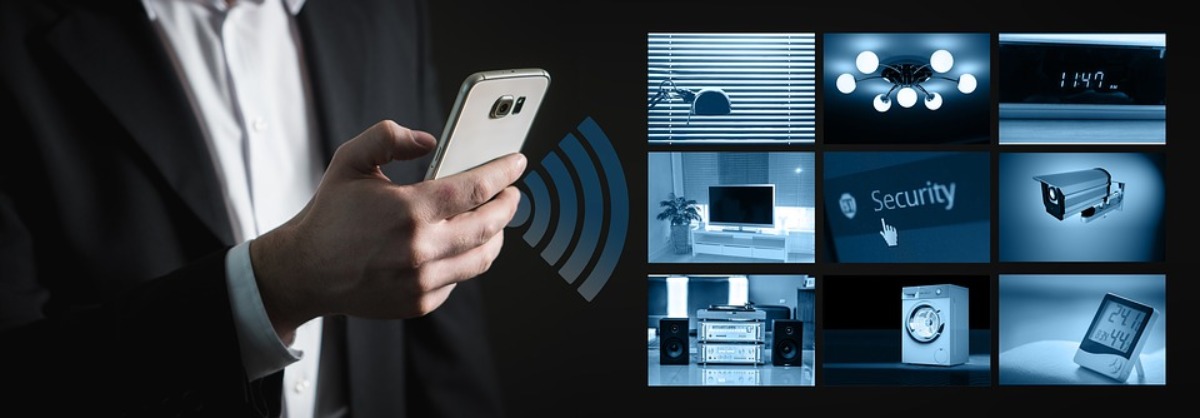Table of Contents
ToggleAnd how to choose one
We live in a chaotic and unpredictable world. Though things may seem relatively peaceful, it only takes mere moments for the whole thing to crumble down. If anything happens to our job or business, we can still survive but a home invasion or a burglary that ends up badly can turn our world upside down and can leave serious trauma that haunts us for the rest of our lives.
It only makes sense when people go to extra lengths to secure and protect their home. Though sometimes it can be a bit extreme, placing the usual security systems and tracking mechanisms at home to prevent and counter an attempted burglary can be totally justified.
In this article, we are going to look at some of the cutting-edge technological features of modern home security systems and how to choose one for your home. Let’s dive right into it.
What is a home security system?
A home security system in its simplest definition is a group of electronic components and devices that work cohesively to secure your home. It might involve security cameras, motion sensors, alarms, secure locks, sirens and emergency contact buttons, smoke, and CO detectors, etc. The exact combination and components vary from system to system and the home.
The major reason why many are installing home security devices is the added protection and peace of mind that comes with it. A home security system helps you relax knowing anyone cannot just break in. This is particularly relevant for urban neighbourhoods where crime rates are higher, and people must leave their children or loved ones alone at home.
There are different kinds of security systems as well depending on how they function during the time of an attempted break-in.
DIY
You can choose to install DIY systems that can easily be customised to suit your specific requirements. When tripped, these systems will alert you of the activity and you can decide how to proceed.
Professional
Then there are the integrated systems that professional services offer which can be used in a plug-and-play model. These will also trigger warnings and alert you but can also inform the local law enforcement authorities and emergency services for quicker response.
Wired and wireless
The differences between these are apparent from the names themselves. While a wired system will be integrated into the home’s existing electrical system, the wireless will work with batteries and will be connected using a WiFi or cellular network.
Smart and off-the-grid –
This, again, is easy to understand from the names. A Smart system is connected to the internet and can be accessed remotely. You can view the live security monitor using a mobile app or web application and can trigger locks and alarms without having to be there. On the other hand, the offline or local system will be accessible from the home base only and can be managed physically from your home.
It’s also worth mentioning that there is no precise or exclusive boundary between these. You can choose to install a combination of these where you can access the cameras online while only operating the locks manually. It all comes down to your personal preferences and requirements.
How to choose a Home security system for your home?
As we mentioned before, a home security system is essentially based on the preference of the people living there. They also differ from what type of home you have, how many people live there, what is the main purpose of installing the system in the first place etc.
1. Depending on the type of home:
If you live in an apartment or flat, you might not have the luxury to install a full-fledged system that covers the premises. Often, apartment owners tend to focus on the major entry gate into their home, which is the main door. Installing a camera call bell and motion sensors around the door leaves 90% of the job done. Then there are also fingerprint scanners instead of traditional locks and motion sensor cameras turned towards the hallway for extra protection. However, if you are living in a home, the scenario changes drastically. You can install motion sensor lights and cameras across the lawn, glass break sensors for the windows, set alerts while opening and closing the garage door and attics, etc.
2. Depending on the number of people:
If you live in a home with children who like to play in the yard, then having a number-lock to your door can be a hassle. They might come and go between playing and every time they press the keypad, the possibility of entering the wrong combination of security keys and triggering false alarms is high. Similarly, as the number of people increases, the times each button gets pressed also increases exponentially which essentially leads to leaving a print or marks on those specific buttons, making it easier for intruders to find the combination. In such cases, it’s easier to go for a fingerprint lock that can be accessed by placing the finger. It’s quicker and can be managed easily. It goes the same for motion sensors and similar triggers in place. You can also set timings to turn on the alerts during the daytime where most people won’t be home and then turn it off or at least some of them when everyone’s home.
3. Depending on the purpose:
If you are living in a high-crime-rate neighbourhood, then it makes all the sense in the world to install a home security system. However, if you simply want to prevent a home invasion, drastic measures like 24 hr surveillance might not be necessary. A set of motion sensor lights can be enough to spook the burglars thinking your home and send them on their way. You can also use gps for tracking which can be placed inside valuable assets and set a geofence around the home. It’s simply inconvenient for children and elderly to remember too many combinations of security codes and be aware of all the systems in place. You can install the basic essential ones and can easily manage with surveillance for the protection.
Also Read: Why You Should Buy Wireless Headsets for Working from Home
We hope you got a clear picture of what home security systems are and how they function. Now the important thing to consider is the combination of devices and integrations that can be customisable in any manner. So, assess your needs and filter out a few specific ones that feel necessary and you will have a pretty secure and protected home without having to spend too much money and resources. You can also check out other interesting news and updates about technology updates here at The IT base. Do check out our articles and let us know your feedback in the comments.
Shashi Teja
Related posts
Hot Topics
Term insurance: why it’s a must-have for young professionals
Beginning a new career is a significant milestone not only in terms of finances but also in terms of responsibilities….
Why Healthcare workers Need Stronger Protections
In recent years, our healthcare system has faced unprecedented challenges, with one disturbing trend standing out: the alarming rise in…



